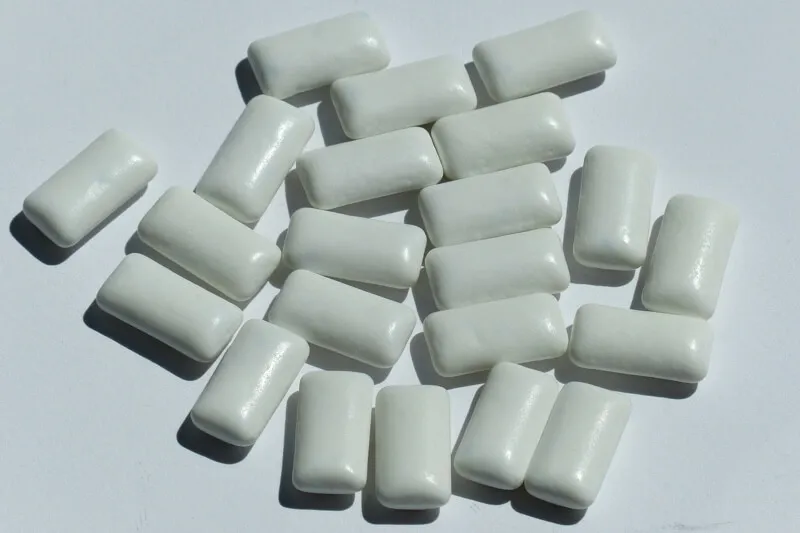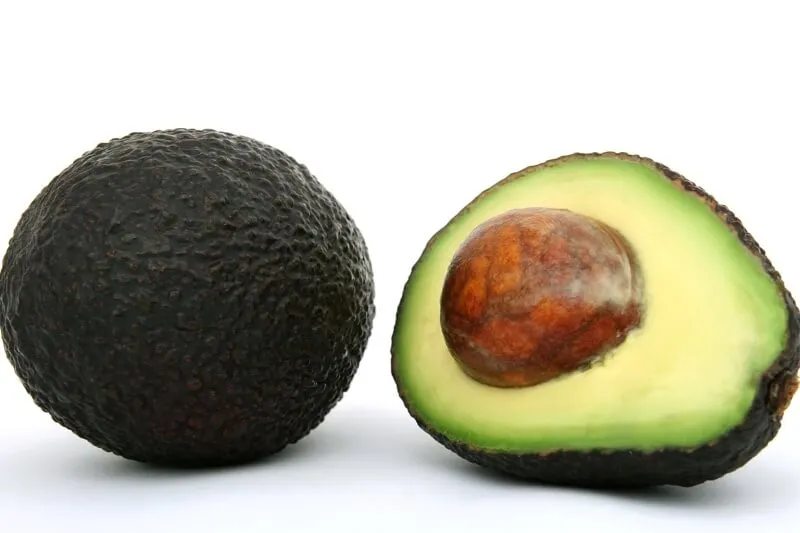As loving pet parents, we constantly strive to provide the best care for our furry companions, and their diet plays a pivotal role in their overall health and well-being. While a balanced commercial dog food diet is typically recommended, it’s natural to wonder about sharing human foods, especially when your dog gives you those irresistible puppy-dog eyes. However, not all human foods are safe for dogs, and certain types of meat, or meat prepared in specific ways, can pose significant health risks. Understanding What Meat To Not Feed Dogs is crucial for preventing serious illnesses and ensuring your canine friend remains happy and healthy. This comprehensive guide will delve into the various forms of meat and meat products that should be kept far away from your dog’s bowl, along with other common toxic items to be aware of.
Understanding What Makes Meat Unsafe for Dogs
When considering what meat to not feed dogs, it’s not always the type of animal protein itself that’s the problem, but often the way it’s prepared, its fat content, or its raw state. Dogs have different digestive systems and nutritional needs than humans, making certain preparations or conditions of meat hazardous.
Raw or Undercooked Meat
Feeding raw or undercooked meat, poultry, and eggs to dogs carries a significant risk of bacterial contamination. Pathogens like Salmonella, E. coli, and Listeria can cause severe gastrointestinal issues in dogs, including vomiting, diarrhea, and fever. While some advocate for raw diets, these come with inherent risks not just to the dog, but also to humans in the household through cross-contamination. It’s best to thoroughly cook any meat given to your dog to eliminate these dangerous bacteria. For more general guidelines on canine nutrition, you might find information on what foods can dogs can not eat helpful.
Cooked Bones
While it might seem natural to give your dog a bone, cooked bones are extremely dangerous. Cooking makes bones brittle, causing them to splinter easily when chewed. These sharp fragments can lead to serious internal injuries, including choking, cuts in the mouth and esophagus, stomach punctures, and intestinal blockages. Always ensure any meat served to your dog is completely deboned.
Fatty and Greasy Meats
High-fat meats, such as bacon, sausage, ribs, and fatty cuts of steak or fried chicken, can be incredibly detrimental to your dog’s health. While delicious to us, the excessive fat content can lead to severe digestive upset, causing vomiting and diarrhea. More seriously, a diet rich in fatty foods can trigger pancreatitis, an inflammation of the pancreas that can be extremely painful and life-threatening. Breeds like Miniature Schnauzers and Yorkshire Terriers are particularly prone to this condition.
Processed and Cured Meats
Hot dogs, deli meats, jerky, and other processed and cured meat products are generally not good for dogs. They often contain high levels of sodium, nitrates, and other artificial preservatives and seasonings. High sodium intake can lead to sodium ion poisoning, causing excessive thirst, urination, vomiting, diarrhea, and even kidney damage. Nitrates and other additives can also be harmful over time. When exploring options, it’s better to stick to lean, unseasoned, and properly cooked meats.
Spoiled or Moldy Meats
Just like with humans, spoiled meat, whether raw or cooked, can contain dangerous bacteria and toxins. If meat has been left out too long, smells off, or has visible mold, it must be discarded immediately in a secure bin where your dog cannot access it. Some molds produce mycotoxins, which can cause severe muscle tremors, seizures, and other neurological problems in dogs.
Highly Seasoned Meats
Many seasonings that enhance the flavor of meat for humans are toxic to dogs. Onions and garlic, frequently used in meat marinades and rubs, contain compounds that can damage a dog’s red blood cells, leading to anemia. Other spices, while not necessarily toxic, can cause digestive upset. Always offer your dog plain, unseasoned meat.
Specific Meat-Related Foods and Preparations to Avoid
Beyond the general categories, let’s look at specific examples of meat-related foods that fall under what meat to not feed dogs:
- Bacon and Bacon Grease: Extremely high in fat and sodium, leading to pancreatitis and digestive upset.
- Sausages and Hot Dogs: Heavily processed, high in fat, sodium, and artificial ingredients.
- Ribs and Other Meat Bones (Cooked): Prime examples of cooked bones that splinter and cause internal damage.
- Poultry Skin and Fat Trimmings: While the meat is safe, the skin and excess fat are very high in calories and fat, increasing the risk of pancreatitis.
- Deli Meats (Ham, Turkey Slices): Very high in sodium and often contain preservatives.
- Any Meat Prepared with Onions, Garlic, or Excessive Spices: As mentioned, these seasonings are toxic or irritating.
- Meat with Gravy: Gravy can be high in fat and salt, and may contain onion or garlic powder.
Other Dangerous Foods Beyond Meat
While our primary focus is on what meat to not feed dogs, it’s crucial to remember that many other common human foods are highly toxic and should be avoided at all costs. These are general dangers that every dog owner should be aware of to safeguard their pet’s health.
1. Chocolate
Chocolate contains caffeine and theobromine, two stimulants that can significantly harm your dog. These substances can cause a rapid heart rate, dangerously high blood pressure, seizures, and even death. The darker the chocolate, the higher the concentration of these toxic compounds, making baker’s chocolate and dark chocolate particularly dangerous. Even small amounts can affect smaller breeds severely.


2. Gum and Candy
Chewing gum and many candies are hazardous for dogs due to choking risks and potential toxic ingredients. A dog might swallow gum, leading to blockages in the digestive system. Super chewy candies like caramel or taffy pose similar risks, while hard candies can fracture teeth.
3. Xylitol
Xylitol is an artificial sweetener found in many sugar-free products, including gum, candy, certain desserts, yogurts, and even some brands of peanut butter. Ingesting xylitol can cause a rapid and severe drop in blood sugar (hypoglycemia), seizures, and liver failure in dogs. Always check ingredient labels carefully for xylitol before sharing any human food or product with your dog.


4. Grapes and Raisins
Both grapes and raisins (dried grapes) are highly toxic to dogs and can cause acute kidney failure. Even a single grape or raisin can trigger a severe reaction in some dogs. Keep all grape and raisin products, including fruit salads and baked goods containing them, completely out of your dog’s reach. For a more detailed look into fruit safety, consider our guide on what fruits can dogs not have.


5. Macadamia Nuts
The exact toxic compound in macadamia nuts is unknown, but ingestion can lead to a range of symptoms including weakness, vomiting, tremors, hyperthermia, and temporary paralysis, particularly in the hind legs. They are sometimes found in cookies and other baked goods, making accidental ingestion possible.
6. Avocados
Avocados contain a fungicidal toxin called persin. While generally tolerated by humans, persin can cause vomiting and diarrhea in dogs. The highest concentrations of persin are found in the leaves, skin, and pit of the avocado. It’s always safer to keep your dog away from avocados and guacamole.


7. Onions and Garlic
As mentioned earlier in the context of seasoned meats, onions and garlic (including chives, leeks, and shallots) belong to the Allium family and contain compounds that are toxic to dogs. They can cause damage to red blood cells, leading to hemolytic anemia, which can be fatal. This applies to all forms—raw, cooked, dehydrated, and powdered. Even small amounts, especially concentrated forms like garlic powder, can be problematic.
8. Excessive Salt
While dogs need some sodium in their diet, excessive salt intake can lead to sodium ion poisoning. This can occur from foods like potato chips, pretzels, overly salted popcorn, or even direct ingestion of table salt. Symptoms include increased thirst and urination, vomiting, diarrhea, tremors, seizures, and in severe cases, kidney damage or death.
9. Tea Leaves and Coffee
Both tea leaves and coffee contain caffeine, which is dangerous for dogs, similar to the effects of theobromine in chocolate. Ingestion can lead to hyperactivity, elevated heart rate, tremors, and seizures. Be mindful of used tea bags, coffee grounds, and any caffeinated beverages.
10. Raw Yeast Dough
If you’re baking, keep raw yeast dough far from your dog. The yeast can expand in your dog’s warm stomach, causing painful gas and potentially a life-threatening condition called bloat (gastric dilatation-volvulus or GDV), where the stomach can twist. Additionally, the fermenting yeast produces alcohol, which can lead to alcohol poisoning.
11. Alcohol
Even small amounts of alcohol can have a magnified effect on dogs, especially smaller breeds. Alcohol affects the central nervous system, causing symptoms ranging from vomiting and diarrhea to incoordination, difficulty breathing, tremors, coma, and even death. Never offer your dog alcoholic beverages or foods containing alcohol.
What Dogs Are Most At Risk?
Dogs of any breed, size, or age are susceptible to harm from toxic foods. However, certain factors can increase risk. Puppies and smaller breeds, due to their smaller body weight, can be affected more severely by smaller amounts of toxins. Dogs with underlying health conditions, such as kidney or liver disease, may also be more vulnerable. Additionally, dogs with curious personalities or those known to be “counter surfers” or “garbage rummagers” require closer supervision to prevent accidental ingestion of harmful substances. Understanding the specific dangers, including what meat should never be fed to dogs, is essential for all pet owners.


What To Do If Your Dog Eats Harmful Food
Despite your best efforts to know what meat to not feed dogs and other toxic foods, accidents can happen. If you suspect your dog has ingested a harmful food or substance, immediate action is crucial:
- Stay Calm: Panicking can hinder your ability to act effectively.
- Contact Your Veterinarian or Animal Poison Control Immediately: Do not wait for symptoms to appear. The sooner you seek professional advice, the better the prognosis. The ASPCA Animal Poison Control Center (APCC) is available 24/7 at 888-426-4435 (a consultation fee may apply).
- Provide Information: Be ready to tell them what your dog ate, approximately how much, when it happened, your dog’s breed, weight, and any symptoms observed. If possible, have the packaging or a sample of the substance available.
- Do Not Induce Vomiting Unless Instructed: Never try to treat your dog yourself without professional guidance. Inducing vomiting can be dangerous in certain situations or if done incorrectly, potentially causing more harm than good.
- Follow Veterinary Instructions Precisely: Your vet may advise you to monitor your dog, induce vomiting, administer activated charcoal, or bring your dog to the clinic for further diagnostic tests, IV fluids, or medications. Hospitalization might be necessary in severe cases. For guidance on caring for a pet after an emergency, you may find our article on what can i feed a sick dog helpful.
Conclusion
Ensuring your dog’s safety and well-being involves careful attention to their diet. By understanding what meat to not feed dogs—including raw or undercooked meats, cooked bones, fatty cuts, processed products, spoiled meat, and highly seasoned dishes—you can protect your furry friend from serious health issues. Coupled with vigilance regarding other common household toxins like chocolate, grapes, and xylitol, you equip yourself with the knowledge to be a responsible and proactive pet parent. Always prioritize your dog’s health by consulting with your veterinarian for any dietary concerns or in the event of suspected poisoning. A little caution goes a long way in ensuring many happy, healthy years with your beloved canine companion.
References
- ASPCA Animal Poison Control Center. (Accessed through ASPCA.org)
